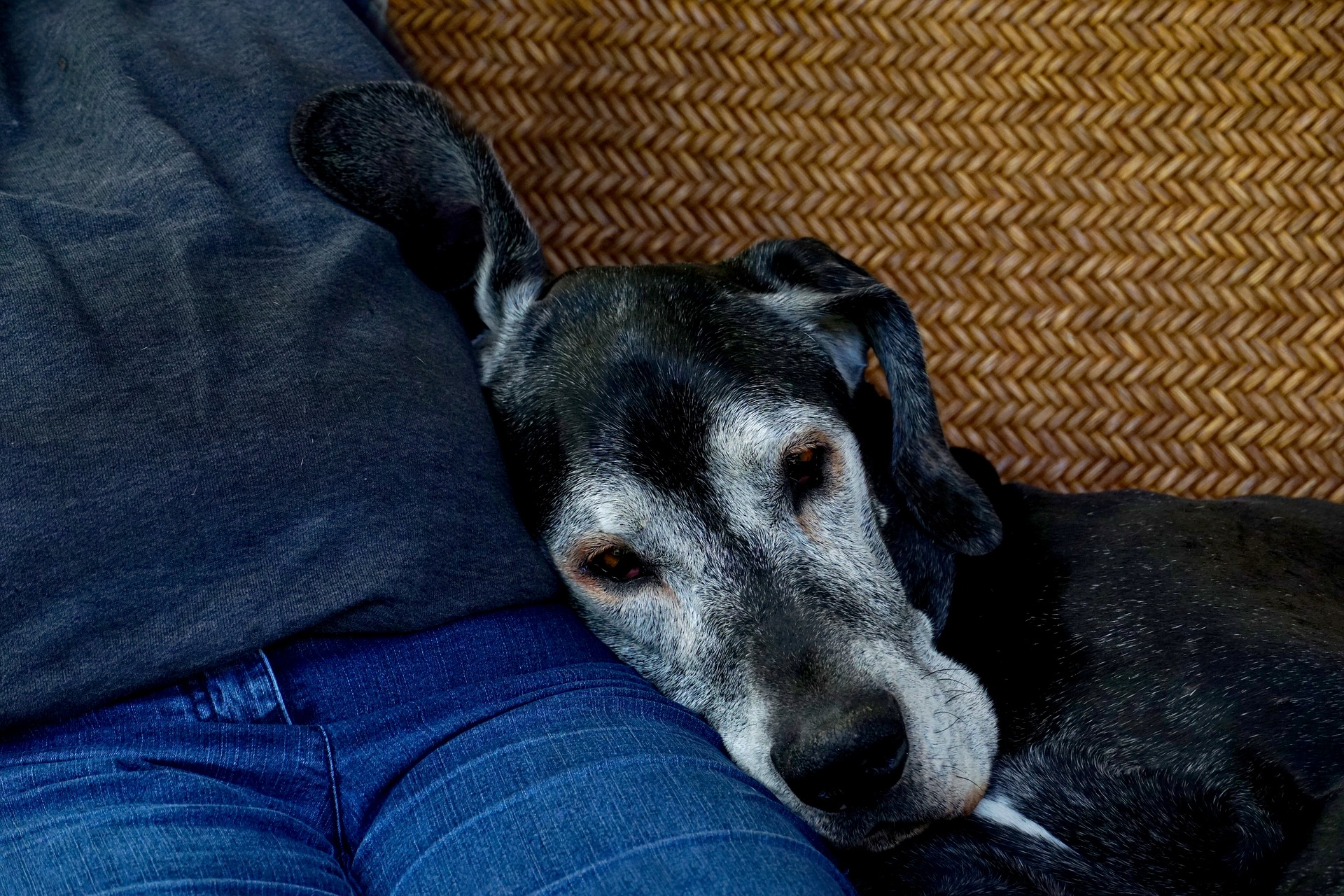Senior Dogs, Part II: The Joys of Loving an Elderly Dog
Throughout their lives, dogs are experts at showing unconditional love and acceptance for their owners. Once dogs have moved into their senior years, owners can return that love by helping them stay comfortable, happy, and healthy.

Harmony Peraza, a veterinary technician and the study subject manager for the Texas A&M College of Veterinary Medicine & Biomedical Sciences’ Dog Aging Project, has seen from her own senior dog just how rewarding it can be to care for an elderly animal.
While the adage may be that “you can’t teach an old dog new tricks,” senior dogs can usually do anything that younger dogs can do, as long as they have some patience and help from their owners.
“Old dogs can learn new tricks! In fact, older dogs may be easier to teach,” Peraza said. “They likely have a longer attention span and more focus than a young puppy. Additionally, teaching your older dog new things can help to keep his mind sharp and slow the signs of senility.”
Owners can also help older dogs stay more youthful by making small changes to their diet and activity to better suit their aging bodies.
Diet changes for a senior dog may be recommended by a veterinarian to treat certain health conditions, encourage weight loss, or help maintain an ideal weight.
“Often, an older dog does not need to consume the same number of calories as a younger dog,” Peraza said. “This can be accomplished by simply feeding less or moving to a lighter or low-calorie food.”
Older dogs may need fewer calories, but this doesn’t mean that they should live a sedentary life. If vigorous exercises like running or jumping have become too difficult for a senior dog, it can still benefit from walking, jogging, swimming, or playing.
Just as with younger dogs, regular trips to the veterinarian are important for keeping senior dogs healthy and comfortable. Peraza recommends taking old dogs to the veterinarian for exams and lab work every six to 12 months and keeping up with flea, tick, heartworm, and intestinal parasite control.
“Having your dog’s health regularly monitored can lead to early discovery of problems, and early discovery of problems can increase the likelihood of a positive outcome,” Peraza said.
Most importantly, owners should remember to care for an elderly dog by giving it the love, attention, and comfort it deserves.
“Offer a comfortable, cool place for your pup to rest,” Peraza said. “Regular baths and grooming are a great way to not only keep your dog clean, but also provide an opportunity to give a nice little massage to your aging family member.
“A little patience, understanding, and a gentle hand can go very far with older dogs,” she said.
Dogs spend their entire lives loving us, so it is the least we can do to make sure they stay just as loved until the end.
Saying goodbye is one of the hardest parts of dog ownership, but researchers across the U.S. are taking some of the first steps toward extending the lifespans of our canine companions.
“We all love our companion dogs and want them to stay with us as long as possible,” said Dr. Kate Creevy, CVM associate professor. “The Dog Aging Project seeks to understand how genes, lifestyle, and environment influence lifespan and health span, the period of life spent free from disease.”
This project will enroll 10,000 companion dogs and their owners from across the U.S to advance the understanding of the aging process in dogs. Learn more at dogagingproject.org.
Pet Talk is a service of the College of Veterinary Medicine & Biomedical Sciences, Texas A&M University. Stories can be viewed on the web at vetmed.tamu.edu/news/pet-talk. Suggestions for future topics may be directed to editor@cvm.tamu.edu.


